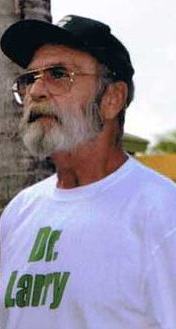Candy Coated School Accounting

by Dr. Larry Murray…
The next time a student comes by and asks you to buy something or otherwise financially support a school activity, ask how much money is in his school’s internal account. He will probably have no idea. In fact, he will probably not know what an internal account is. However, as a taxpayer, you should.
Each school maintains an internal account in which it houses all the money from all those fundraisers from car washes to candy sales. The rules and regulations governing fundraising are minimal and lightly enforced, much to the chagrin of the Audit and Finance Committee. According to an audit recently released by the School District, total deposits for ten schools as of June 30, 2014 amounted to $1,241,914. This is the surplus that remains after all expenses for the school year were paid.
That amount, in turn, is broken down into cash on hand and certificates of deposit. For example, cash on hand totals $878,617, ranging from $31,381 at Sugarloaf Elementary/Middle School to $175,271 at Key Largo Elementary/Middle School.
Five schools are so awash in cash beyond their current needs that they have purchased long term certificates of deposit to house the excess. The CD amounts range from $16,381 at Coral Shores High School to $210,762 at Key West High School.
Bear in mind that these internal accounts are under the complete control of each school, specifically the principal and his bookkeeper. They select which banks house the cash deposits, interest free, and negotiate individually the interest rate for CD’s. They are not required to follow the District’s contractual banking arrangements nor does the District provide any oversight or supervision. The principals are free to spend the funds as they wish.
Finally the audit was essentially an attestation audit, much as Steve Pribramsky did for the HOB contract. An attestation audit does not go much further than checking the math performed by computers. There is no discussion as to how money on deposit was spent, or, most importantly, if it was spent wisely. If you want answers to those questions, you will have to ask your local principal.
“Illegitimi non carborundum.” –St. Lawrence O’Toole, Bishop of Dublin, and a favorite quote of Jimmy Hoffa
Dr. Larry Murray
Fiscal Watchdog and Citizen Activist



Dr. Murray, you are describing what were called ‘slush funds’ when I started teaching in 1969. No accountability. My school in DE grouped football receipts and expenses with library expenses. Untraceable!
One would think after the Acevedo affair we would have learned. But wait, I forgot the Bubba system.
Thank you very much for your comments. You say nothing with which I disagree, particularly the Acevedo episode.